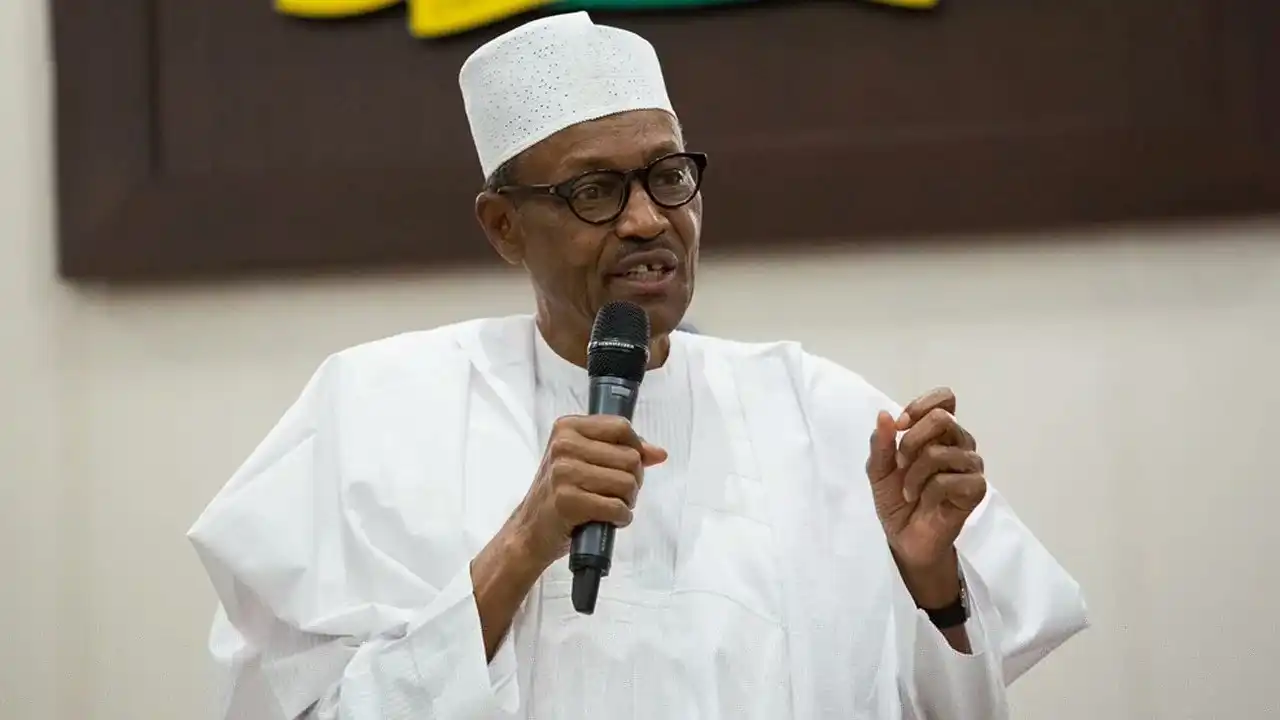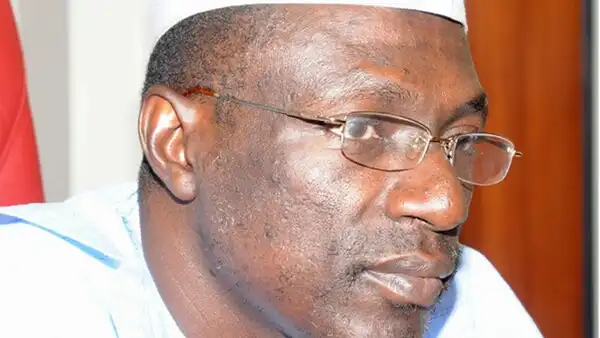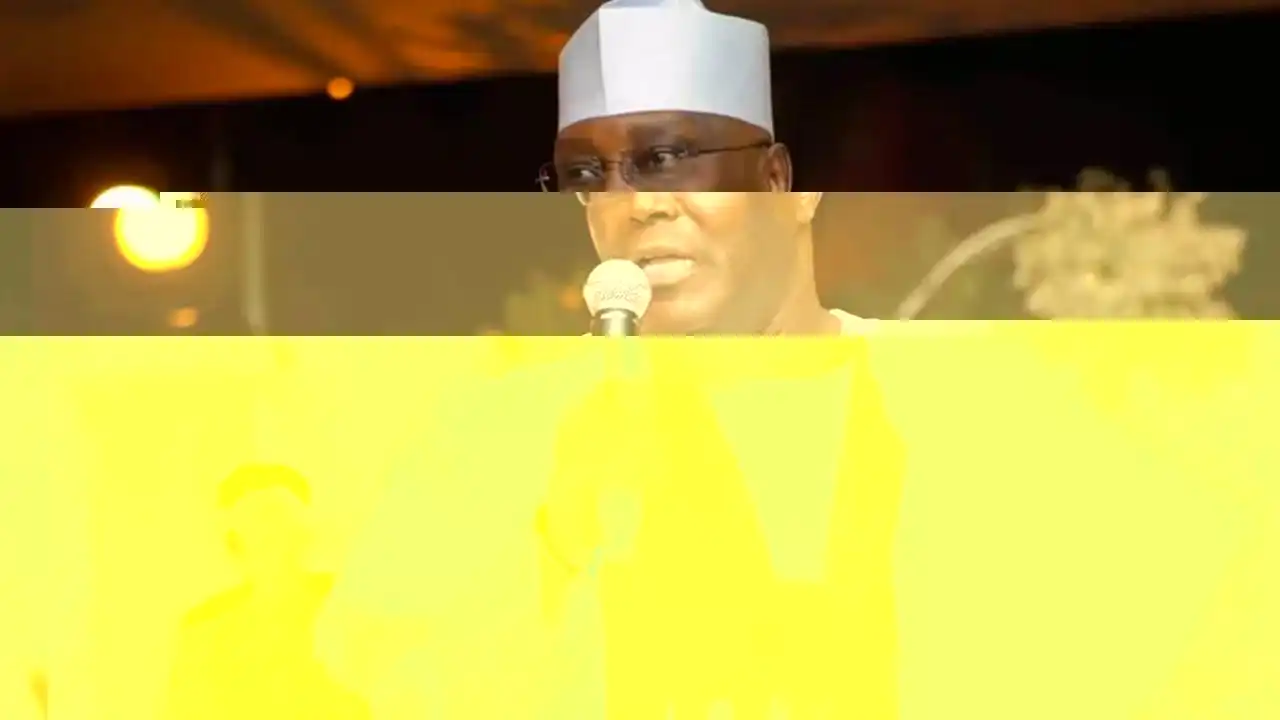
President Miuhammadu Buhari
President Muhammadu Buhari has two things working for him: frankness and resoluteness.And these kind of set him apart, making him look different from the “madding crowd” of the rest of the political class, both in his party, All Progressives Party (APC), and main opponent, Peoples Democratic Party (PDP).
The President’s frankness
Except on issues, which to his worldview concern Nigeria’s unity, which also happens to be issues dear to the “northern establishment,” Buhari frankness comes easily through his public speeches.
His first-year anniversary (May 29, 2016) speeches to both some newspapers editors and National broadcast had plenty of it. But, as frankness goes in politics, it tends to open up the President’s flanks, exposing his party to punches.
If PDP could look well and think intelligently of ideas and plans, Buhari unwittingly or indeed, wittingly supplies campaign themes when he talks.
Take a sample from his comments on the country’s worsening economic conditions:
“The biggest shock was when oil price went down to less than $40. I asked the governor of the Central Bank of Nigeria to go and bring to me what we had been doing with the foreign exchange we had earned.“He came back and we discovered it’s all food items grains, tomatoes, rice … that was unbelievable! All those billions of dollars went into the purchase of food? I believe 60 percent of Nigerians eat garri, yams, grains that they grow. So, what was happening was this: those who hold a lot of Naira on their hands changed it into dollars and kept…!”
Buhari tells it as it is, or as he met it, putting out the problems as fancifully as he could. However, it raises question whether Buhari/APC are really thinking outside oil.
PDP ought to take some steps towards public apology to Nigerians first over maladministration before mapping out strategies aimed to solve Nigeria’s problems better than now seen.
Take this one on the 2014 National Conference on which, Buhari would have realized by now that he could not shut Nigerians up:
“No, I don’t want to tell different stories. I advised against the National Conference. You would recall that the Academic Staff Union of Universities (ASUU) was on strike for nine months, yet, that government had about N9 billion to organize that meeting.
“I never liked the priority of that government on that particular issue because it meant that the discussions were more important than keeping our children in schools. That is why I haven’t even bothered to read it or even ask for briefing on it. I want it to go into the so-called archives.”
The President’s lack of the politician’s sheigans suggests that he is autocratic in decision-making. It again raises questions whether he and his party are in consultation over policy issues and whether on a policy the government decides to pursue, the party is making inputs.
APC and national questions
Although as a party, the APC did not attend the 2014 National Conference, representatives from APC states participated. Till date, claims by the National Assembly that, as representatives of the people, they were the ones to amend the country’s Constitution, had not stood: the various amendment attempts so far having not solved many of the constitutional imbalances.
The country continues to be weighed down by age-old crises. Although leadership remains a critical part of the problem, the idea that the character of a leader is sufficient to turn things around has not proven adequate in Nigeria’s case.
This seems the basic thing that the 2014 Confab went to great lengths to solve.Buhari, a civil war veteran and former Head of State, who like his predecessor, former President Olusegun Obasanjo, had seen it all and may prove a strong and great leader would need the wisdom understanding and insights set out in the confab report.
APC, PDP and future elections
Most northern leaders under Arewa Consultative Forum (ACF), Northern Elders Forum (NEF) and others opposed the confab in spite of attending.
Restructuring of the lopsided Nigerian federation was the principal job done by the 450-member talks, a collective of some of the Nation’s best and most credible from various political, ethnic, religious, social communities and interest groups.
Southerners’ agitations for restructuring are in a bid to solve marginalization by one region of the country against others. The crucial stuff the confab did was varying executive official functions and duties between the federal government and the (36) states and also re-engineers the country’s business and finances (fiscal federalism).
The report is thus designed as basis for the country to take-off and make progress: they set-up the states (36) to be active federating units and the federal government to play “general guide and direction” roles.
Neither APC, which now governs at the federal level and controls 23states and their Assemblies, nor PDP, which governs in 12 (APGA, 1) should make any mistakes about this: issues around the 2014 confab report will be prominent in the 2019 election, even if Buhari dumps it on the shelf.

Makarfi
Indeed, the PDP, which set-up the Ahmed Muhammed Makarfi Caretaker Committee ought to step-up serious opposition activities as well as image-rebuilding ideologies and policy/programme ideas by going into that report, not only to take possession but use it intelligently. PDP has still to give due attention to alternative ideas and plans. Its pre-occupation seems merely to posture without deep thinking about return to power in 2019. For now, it seems to be concerned with shopping for a credible candidate that can stand up to Buhari.
Unfortunately, the party is treading soberly, constantly looking over their backs being of greater interest to Buhari anti-corruption war at the moment.Long struggle for restructuring

Former Vice President, Atiku Abubakar
Former Vice President, Atiku Abubakar, wasn’t canvassing restructuring for the first time when he spoke at a book launch last week entitled, We Are All Biafrans by Chido Onumah in Abuja.The campaign, which he ran severally in the past in print, on TV and social media featured in his speech at APC campaign rally in Lagos, where Buhari was picked party candidate.
Most of the eminent personalities speaking in agreement with Atiku are not doing so just now. Chief Olu Falae, Chief Emeka Anyaoku, Alhaji Balarabe Musa, Col. Dangiwa Umar, Mr. Shehu Sani (now APC Senator, Kaduna State) etc. have all been the vanguard of campaign for restructuring.
Chief Anyaoku, for example, had canvassed a variant, regionalism, of the First Republic for a long time and presented it to the Confab. The confab produced a two-part set of recommendations on the 1999 Constitution and on governance: one set (about 170 resolutions) for direct action/implementation by the Executive; the other (over 300) to go through the Legislature.
Incidentally, the confab, while upholding Nigeria’s bicameral legislature recommended it part-time to cut costs. Majority of Nigerians, including Buhari don’t like the full-time salaries of the legislators.
The lawmakers’ critics are often bitterly angry at the obscene amounts they appropriate/misappropriate for themselves. Their reputation for fighting for so-called community projects since 1999 would by now, turn many communities to “small London” but have not.
Their alleged part in padding the 2016 budget with town halls, local roads, bridges and other community projects un-appropriated, forced the President to refuse to sign the document until it was overhauled.
Besides, how Buhari/APC solves the ghost of agitations re- awakened by militancy in the oil-rich South-south states by Niger-Delta Avengers (NDA) and in Southeast-based Indigenous People of Biafra (IPOD) will be ammo to politicians.
Add to them, the festering Fulani/southern farming communities/land-owners crisis. And the campaign themes for 2019 election, around which politicians are currently scheming for in a “black-market” fashion due to some fear of, or reverence for Buhari are mounting.
Buhari pushing the Confab report to the archives doesn’t and won’t kill it. He could only succeed to keep it under the shelf during his Presidency.
APC and cabal-like politics
Publicly, there seems to be little or no links between the APC and the Presidency. Buhari and senior Presidency officials appear to constitute an inner-caucus to run the government along with the cabinet of ministers who seemingly implement as the President directed.
It is not clear if the President brooks inputs or intervention from anywhere, including his party. Party leaders seem kept at bay while Buhari appears to run his government like a technocrat.
National leader, Asiwaju Ahmed Bola Tinubu, steps out once in a while to talk in order to diffuse tension or speak in support of Buhari on some national and policy issues.
Party National Chairman, Chief John Odigie-Oyegun, also speaks; more to support Buhari and what he (the President) is doing than espouse party programmes and policies. Ministers and other senior government officials are up and doing. But they seem to move by second-guessing the President.
All too apparently, Buhari remains a popular President. APC may not find a replacement for him if he decides to do one term and PDP could be faced with similar problem, at least, in the 2019 election.
And that is in spite of his administration’s policy somersaults like the recent pump-price of petrol (premium motor spirit – PMS) increase over which the masses of Nigerians are bitterly disappointed.
Fuel crisis had set the stage to bring down Goodluck Ebele Jonathan government but Buhari has so far ridden the monster with reasonable success.
Buhari would, however, need to change some of his methodologies, now being increasingly seen, even by sections of his home-base northern electorates as dictatorial.
By 2019, none of the parties could talk of replacement for Buhari on corruption, and that is even because Buhari, as an anti-corruption fighter, may only end up scorching it, not kill it. However, many Nigerians are apt to swear by him on corruption, hoping that by 2019, his administration would have dealt a severe blow on the scourge.
Guardian